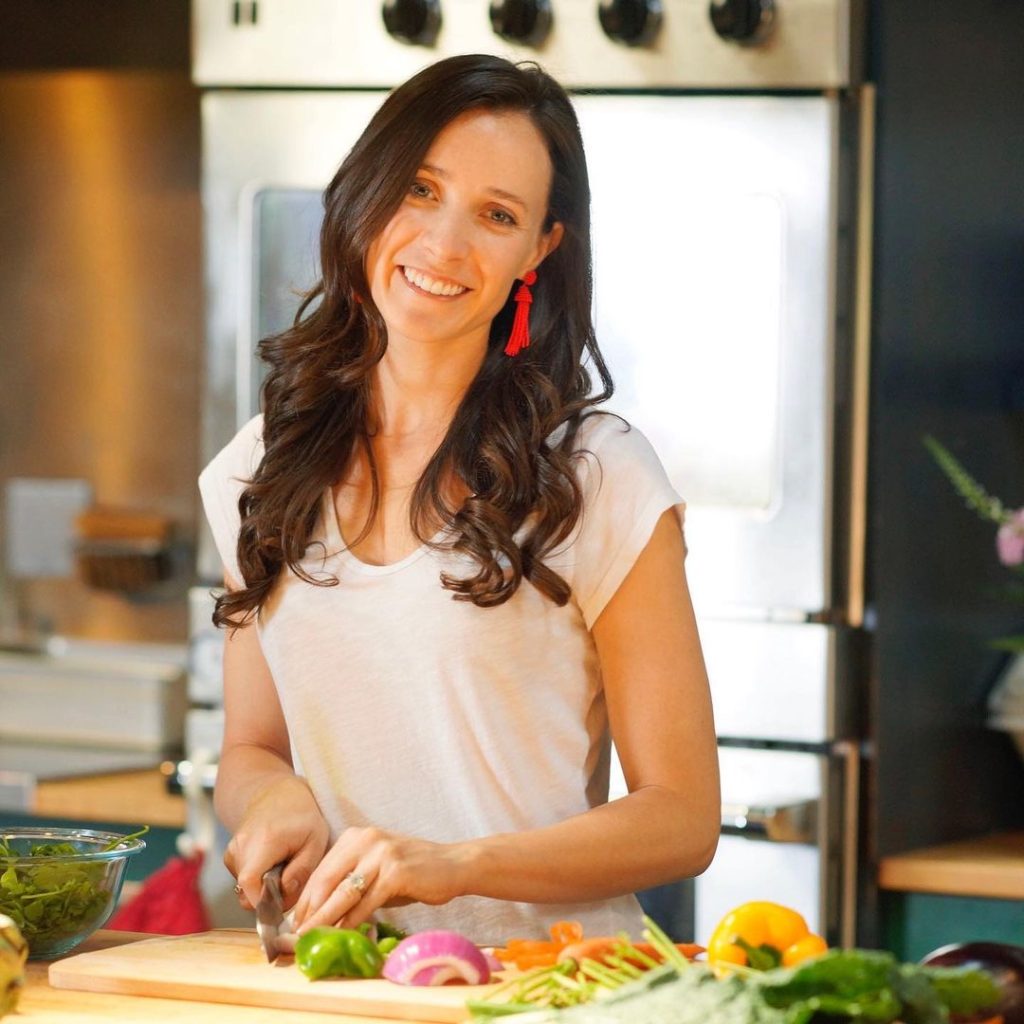
After mothers give birth, they tend to neglect themselves and give their sole attention to their newborn. However, it’s vital for mamas to take care of themselves mentally, emotionally, and physically. Especially having proper nutrition during their recovery and postpartum journey which is vital to both the mother and baby.
A mother’s body goes through so much change and growth for 10 months. Even after giving birth, a mother’s body passes vital nutrients to the baby and has to be re-designed for situations like breastfeeding. We’ve met up with Tamsin Jordan to discuss the importance of postpartum nutrition, tips for healthy eating after giving birth, and foods mamas should avoid.
Tamsin Jordan is a Registered Dietician, wellness expert and fellow mom. She specializes in all areas of women’s health, including fertility, pregnancy, postpartum, weight management and digestive disorders. She works at Rosh Maternal Fetal Medicine, a high-risk OBGYN practice in Manhattan and also runs her own private practice. You can connect with Tamsin via Instagram or her website.

HERE’S WHAT WE LEARNED FROM TAMSIN.
HOW LONG HAVE YOU BEEN A MOTHER AND WHAT’S ONE THING YOU WOULD LIKE TO SHARE ABOUT YOUR BIRTH EXPERIENCE?
I have a two year old daughter named Chloe and my second on the way! My biggest recommendation around birth is to read as much as possible about what to expect, especially other women’s birth stories. Your healthcare provider won’t have enough time to talk you through all the possible outcomes. It’s up to you to take charge of your care and know what your options are.
WHAT WAS THE TRANSITION TO MOTHERHOOD LIKE FOR YOU?
It was a shock to the system! In the last two years I’ve had some of the greatest ups and downs of my life. Nothing can really prepare you for the job of parenting, it really is a round-the-clock job. Luckily, I have had the support of my husband, family and a great nanny who has helped me juggle work and family and enabled me to squeeze in some self-care.
MAMAS TEND TO NEGLECT THEMSELVES AFTER GIVING BIRTH, AND FOCUS ONLY ON THE NEWBORN. WHY IS IT IMPORTANT FOR MOMS TO ALSO FOCUS ON THEIR POSTPARTUM NUTRITION?
The postpartum period, broadly defined as the first 12 months after birth, is a particularly crucial time for mom and baby. What a mom chooses to eat in those first few months can influence the speed of her recovery, prevent mental health disorders, sustain energy levels and support the quantity and quality of her breast milk. It’s important to highlight that moms do not need to follow a ‘perfect diet’ in those early days. Remember to eat every few hrs, include some fruits, vegetables, whole grains and a well-rounded prenatal supplement.
HOW DOES NUTRITION HELP WITH MATERNAL MENTAL HEALTH?
When it comes to maternal mental health, I encourage my clients to include wholesome, slow-releasing carbohydrates (think brown rice, oats, farro, vegetables) to fuel their brain’s with a constant supply of glucose and also healthy fats. Healthy fats can be found in foods such as fatty fish (choose the low mercury varieties of seafood such as salmon, anchovies, mackerel, herring, shrimp), olive, avocado oil and coconut oil, eggs (including the yolks), chia seeds and avocados. These foods, particularly fish, contain docosahexaenoic acid (DHA). This is an essential component of tissue membranes in the brain and can also get depleted during pregnancy. DHA also transfers into breast milk supporting your baby’s brain function too.
WHAT ARE TIPS FOR HEALTHY EATING AFTER GIVING BIRTH?
- Prepare early – Find a handful of simple, healthy recipes that everyone in your family can cook. Practice cooking these in your third trimester and freeze a few batches so all you have to do is reheat.
- Keep things simple – Make your life easier by signing up for a food delivery service or find local restaurants that deliver
- Continue taking a comprehensive prenatal supplement, even if you are not breastfeeding
- Eat little and often (every 2-3 hours)
- Aim to eat a variety of ‘real foods’, avoid processed, refined foods such as white bread, white rice, cookies, cakes and candies
- Drink up! Try to drink around 100 fluid ounces of fluids per day, this can include plain or flavored water, coffee, tea or combination!
WHAT ARE SOME FOODS THAT A RICH SOURCE OF NUTRIENTS?
- Fruits and vegetables (especially green leafy greens such as spinach, kale, swiss chard, broccoli)
- Red meat, including organ meats (especially liver)
- Fish and shellfish
- Eggs
- Dairy products
- Whole grains (brown bread, whole wheat pasta, farro, quinoa)
- Fermented foods (kefir, miso, kimchi, sauerkraut)
ARE THERE SPECIFIC NUTRIENTS/VITAMINS THAT MOMS SHOULD FOCUS ON WHEN RECOVERING?
The nutrients that pass directly into breast milk and that can be influenced by diet include:
- B Vitamins
- Vitamin A, D, K
- Choline and DHA
- Selenium and iodine
High risk for deficiency: vegetarians, vegans, bariatric surgery, celiac disease
ARE THERE FOODS THAT MAMS SHOULD AVOID?
No need to completely eliminate foods unless baby has an obvious reaction
- Some food protein (such as cow’s milk and peanut protein), does pass into breast milk
- Consider moderating intake or eliminating if there is history of food allergy in your family
- Caffeine (max 2-3 cups standard coffee per day)
- Alcohol – wait a few hours before breastfeeding (refer to charts online)